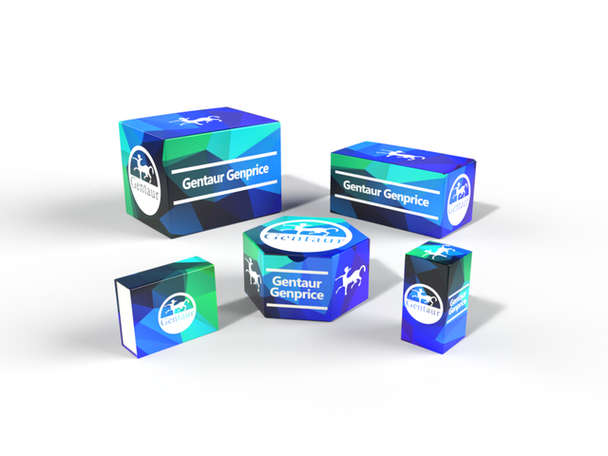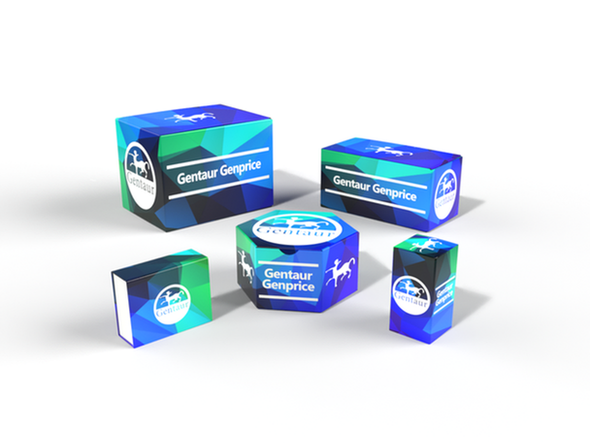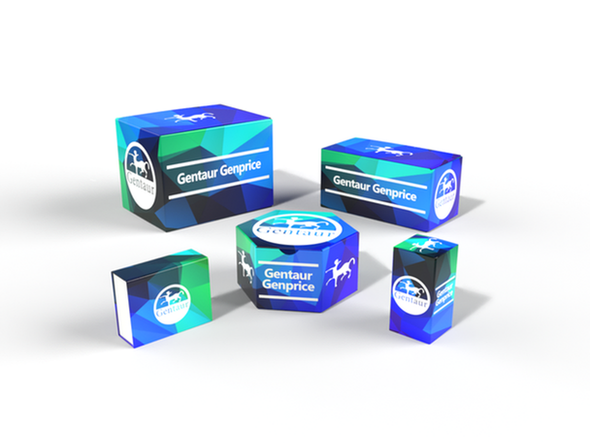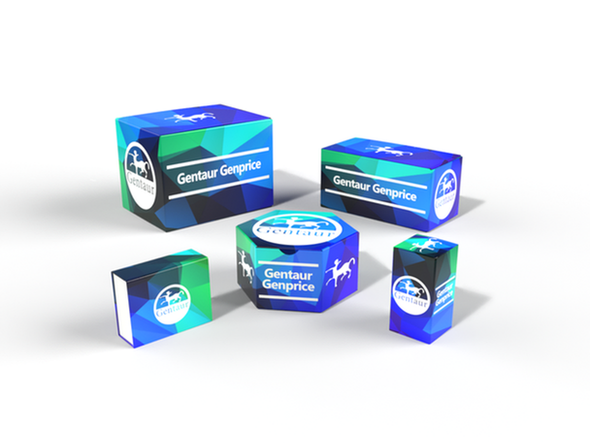749
Human Autoimmune regulator (AIRE) ELISA Kit | KTE60636
- SKU:
- 749-KTE60636
- Availability:
- Usually ships in 5 working days
Description
Human Autoimmune regulator (AIRE) ELISA Kit | KTE60636 | Gentaur UK, US & Europe Distribution
Application: This Human Autoimmune regulator (AIRE) ELISA Kit employs a two-site sandwich ELISA to quantitate AIRE in samples. An antibody specific for AIRE has been pre-coated onto a microplate. Standards and samples are pipetted into the wells and anyAIRE present is bound by the immobilized antibody. After removing any unbound substances, a biotin-conjugated antibody specific for AIRE is added to the wells. After washing, Streptavidin conjugated Horseradish Peroxidase (HRP) is added to the wells. Following a wash to remove any unbound avidin-enzyme reagent, a substrate solution is added to the wells and color develops in proportion to the amount of AIRE bound in the initial step. The color development is stopped and the intensity of the color is measured.
Detection Method: Colorimetric
Conjugate: N/A
Sample Type: Cell culture supernatants#Serum#Plasma#Other biological fluids
Assay Type: Multiple steps standard sandwich ELISA assay with a working time of 3-5 hours. It depends on the experience of the operation person.
Kit Component: • Human Autoimmune regulator microplate
• Human Autoimmune regulator standard
• Human Autoimmune regulator detect antibody
• Streptavidin-HRP
• Standard diluent
• Assay buffer
• HRP substrate
• Stop solution
• Wash buffer
• Plate covers
Features & Benefits: Human Autoimmune regulator (AIRE) ELISA Kit has high sensitivity and excellent specificity for detection of Human AIRE. No significant cross-reactivity or interference between Human AIRE and analogues was observed.
Calibration Range: Please inquire
Limit Of Detection: Please inquire
Usage Note: • Do not mix components from different kit lots or use reagents beyond the kit expiration date.
• Allow all reagents to warm to room temperature for at least 30 minutes before opening.
• Pre-rinse the pipet tip with reagent, use fresh pipet tips for each sample, standard and reagent to avoid contamination.
• Unused wells must be kept desiccated at 4 °C in the sealed bag provided.
• Mix Thoroughly is very important for the result. It is recommended using low frequency oscillator or slight hand shaking every 10 minutes.
• It is recommended that all samples and standards be assayed in duplicate or triplicate.
Storage Instruction: The unopened kit should be stored at 2 - 8°C. After opening, please store refer to protocols.
Shipping: Gel pack with blue ice.
Precaution The product listed herein is for research use only and is not intended for use in human or clinical diagnosis. Suggested applications of our products are not recommendations to use our products in violation of any patent or as a license. We cannot be responsible for patent infringements or other violations that may occur with the use of this product.
Background: The Autoimmune Regulator is expressed in the thymus. It causes transcription of a wide selection of organ-specific genes. This reduces the threat of autoimmunity occurring by allowing the elimination of autoreactive T cells by the process of negative selection if they are too reactive to self. It is mutated in the rare autoimmune syndrome Autoimmune Polyendocrinopathy Syndrome type 1 (APS-1), also known as Autoimmune Polyendocrinopathy-Candidiasis-Ectodermal Dystrophy (APECED) . Disruption of AIRE results in the development of a range of autoimmune diseases, the most common clinical conditions in the syndrome are hypoparathyroidism, primary adrenocortical failure and chronic mucocutaneous candidiasis. AIRE is expressed primarily in the thymus
Alternative Names: AIRE; AIRE1; APECED; APS1; APSI; PGA1; OTTHUMP00000109529; autoimmune polyendocrinopathy candidiasis ectodermal dystrophy
Search name: AIRE; AIRE1; APECED; APS1; APSI; PGA1; OTTHUMP00000109529; autoimmune polyendocrinopathy candidiasis ectodermal dystrophy
Tag: AIRE










